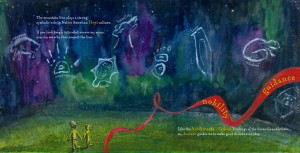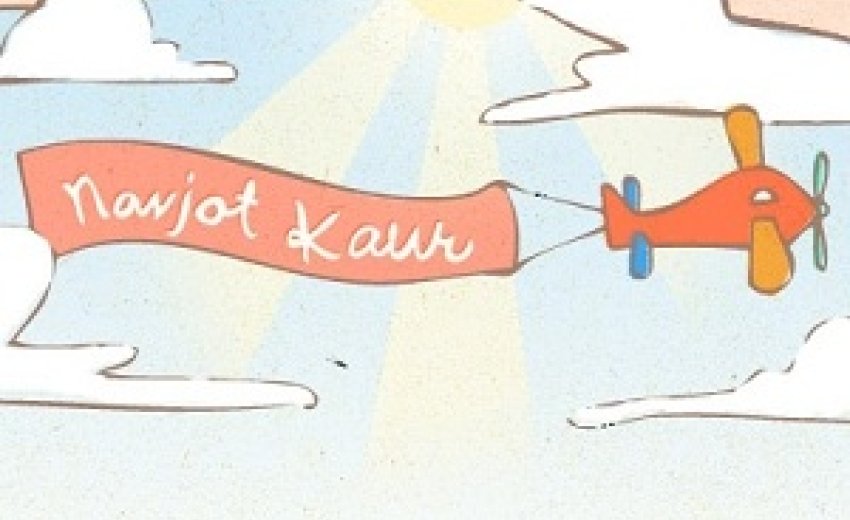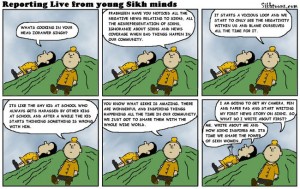You know the saying: “when it rains, it pours”? Well, that’s how our recent move to the west coast feels like. But I’m not just talking about the regular bumps of maneuvering through mazes of boxes or narrowly missing the falling cabinet door; I’m talking about experiencing the hidden, indirect racism we tell ourselves does not exist in the Great White North (I won’t even go there!). Perhaps we’ve just been fortunate to have such great friends from diverse backgrounds. Let me make it known though, it is happening in Canada.
For years, I didn’t think much of the fact that my teachers at school in the UK could never pronounce my name and dubbed my sister with the name “Fred” to make it easier for them. Her name is pretty well pronounced phonetically, so I’m sure the issue was not the pronunciation.
When we first moved to Ontario, we had been shopping in a local store when a woman wouldn’t stop staring at my husband. We thought nothing of it, at first. My husband wears a turban so it’s almost second nature to ignore the stares. But it just didn’t stop. Finally, my husband approached her and asked, “Is there a problem?” Her response was “Why are you wearing that thing on your head?” I can still remember that flabbergast feeling in the pit of my stomach as those words came out of her mouth but the passive observation of the bystanders left me sickened. When my husband continued the dialogue with calm and diplomacy, informing this lady that we are Sikhs and the turban is “Who I am”, the lady remained uninterested. Instead she reinforced her ignorance by repeating phrases we’d often heard in the UK, like “when you move to our country, you need to follow our ways.” I wonder what the First Nations people would have to say about her reference to our country when they were welcomed the first settlers without prejudice. By the end of the conversation (yes, we were not about to walk away from a teachable moment), quite a crowd of ipped-head shoppers had gathered within earshot of the aisle. The lady apologized but the sad truth was evident – not a single bystander stepped forward, not even the store manager who had realized by that point that there was a “situation”. We left our basket and walked out of the store.
After 9/11, we again experienced the kind of indirect backlash that may have come as a surprise to some. If we were driving along the highway, passing drivers rolled down their windows shouting slurs and we were often exposed to profane gestures. “Raghead” pushed its way into our mind’s dictionary and yet the definition did not identify with who we are. The Sikh identity had been so misrepresented in the media that hidden biases were (and still are) running rampant.
These and more could all have been defined as isolated incidents and life went on, but we did recognize the need for change and worked harder to achieve that end goal.
 When we were blessed with our son almost five years ago, and realized a few months into our parenting journey that he was Deaf, that change would find an accelerated charge. We could have drowned in those fears at the time but thankfully, we grabbed any and all available resources to become informed about a community we knew little, if anything about. Our son would wear bi-lateral hearing aids and a small Sikh turban – the patka or dastaar, but would people understand who he is? I feared not.
When we were blessed with our son almost five years ago, and realized a few months into our parenting journey that he was Deaf, that change would find an accelerated charge. We could have drowned in those fears at the time but thankfully, we grabbed any and all available resources to become informed about a community we knew little, if anything about. Our son would wear bi-lateral hearing aids and a small Sikh turban – the patka or dastaar, but would people understand who he is? I feared not.
During the frequent visits to clinics and hospitals, I began creating A Lion’s Mane to ensure that there would be an authentic resource available to anyone choosing to become informed about an identity that carries many misconceptions. It was time to change confusion to solution. In her TED Talk, Zoe Weil reminds us that the world becomes what we teach – it was time to raise solutionaries.
Our Acupuncturist had known us for a decade or more – he saw the turban all the time. We could have assumed he understood its significance but it was only after he read A Lion’s Mane that he shared with me that he now understood the meaning behind our crown and he felt like wearing one too! It was the interconnectedness that made sense to him – the knowledge that we are global citizens first.
“Can I ask, are you Indian?” That was a comment from a tradesman during our recent move to the west coast. I didn’t respond with what nearly flew off my tongue but somehow managed, “yes, but from England originally.” As he hurried towards the door, he added: “Wow, you people get around don’t you?” I was already exhausted from little sleep and too much to do so I couldn’t hold back.
“What do you mean?”
“Wherever you go in the world, there’s Indians…”
“That’s a good thing, isn’t it?”
“Well, I guess it’s because you’re such good merchants…with all your shops.”
“Actually, we have many strengths, in many trades”
“You do?”
“We always have.”
By this point, I wanted him to just leave but as if to excuse his ignorance, his parting statement almost made things worse – he was going to adopt a child from India “but I don’t have a drop of Indian blood in me”. He thought that Danish families getting prioritized on International adoption lists due to the funding Orphanages in India receive from them, was directly influenced by their image in the world. His hidden biases were clear – the Danish were “affluent” and their country was “so clean” whereas, the Indians just “get around”. I shut the door, tight.
Days before, a new neighbour had made reference to Cowboys and Indians with an indirect knock to the Sikh builders in our area. It did not go down well. When he later introduced himself as our “white neighbour”, we suggested he not dip down to ethnic jokes. Maybe there’s more colonial influence in the Great White North than we realize and these people’s hidden biases of superiority are so deep-rooted that even they don’t fathom the consequence of their words. If so, we can’t be bystanders and must raise our children to be solutionaries.
Usually, I can take quite a lot before something unsettles me. But by today, my pressure cooker was whistling.
When you think things can’t get much worse, they have a way of doing just that. When it rains, it pours, right? As I went to pick up my son at the end of his second day in Kindergarten, he appeared at the exit door with his patka almost off his head. I thought to myself, they probably had Gym class. But that wasn’t the case. I was quickly informed that another Kindergartener had pulled my son’s patka off his head while he sat on the carpet in class. I almost cried but didn’t. I felt angry but held it together for my son’s sake. I questioned whether it had been an action of curiosity? I hoped that the response would be positive but it was not. Bullying, in Kindergarten.
Yes, my son looks different in many ways. He has his visible faith-identity and he also has his Deaf identity. He’s smaller than his peers and he has some special challenges but his personality is like the sunshine. Its rays trickle into even the darkest cracks and brighten up your day. I would not allow this incident to darken his future school days.
We came home and I held it together the whole way. Once we cuddled and I reassured him when he asked, “You going to tell [boy’s name] to say sorry to me?” I went into another room and cried. I’m not sure why I felt so defeated for that tiny moment but I did. But after talking to my sister who now works for a not-for-profit lobbying for change for such issues, I gained my strength and prepared next steps.
The Teacher handled the situation by approaching the other child’s parent who consequently apologized to us personally which was truly appreciated. The teacher agreed to have me come into the class to present about the Sikh identity since she was honest enough to accept that she was not well informed enough about the identity herself. I was grateful for an opportunity to change my anger at ignorance into a more constructive response.
Although our son has been hesitant to return to school, I gave him a day filled with love and cuddles at home before grappling with a year of unknowns. For the first time, I understood why a faith-based school feels safe and secure for immigrant families and even began searching for my local ones. It was a gut reaction. But then again, the world is a global encounter and life happens.
Whether you are a member of a visible identity or are living with a special challenge, bullying and ignorance hurts. Presenting such an issue to Kindergartners is never easy but they had to be given an opportunity to become solutionaries and so, I tried to be positive and embrace the support from the teachers to do just that.
I was surprised at how engaged the kids remained with the story and my little kinesthetic prompts throughout the reading helped keep them active. After my presentation, students were eager to create their puppets and crowns and the teachers’ enthusiasm and interest to “learn something new” was genuine. Dismissal was contagious with roaring lion masks and crowned Kindergartners filling the area. Everyone stared. Not because these children looked different but because these bystanders too wanted to learn something new. My son’s face was the brightest of all and when he told me: “Mummy, thank you for reading A Lion’s Mane to my class,” it made my heart smile. Small people can create big change. Authentic voices are needed but children can be raised to become solutionaries and become the informed leaders we need for tomorrow’s world.
Look out for some additional free resources I’ll be sharing with you soon.
If you are faced with a similar situation or if your child is being bullied, here are a few suggestions:
1. Contact your child’s teacher immediately and discuss your concerns.
2. Ensure that your child feels like his/her voice is being heard. Listen to your child and teach them to say “no”.
3. Schools offer interpreters, so if you are not comfortable handling the situation yourself, approach a community member or group who can advocate for your child.
4. Offer resources to the school to help them understand your child’s needs.
5. Find support for yourself and your family.
6. Visit local events such as exhibits and share your experiences. If you are in the U.S. the Sikh exhibit is up for another two years at the Wing Luke Museum of the Asian Pacific American Experience and would make a great school visit. (206) 623-5124 x 115
If you would like to learn more about my presentation to use in your own classroom, please feel free to contact me.


